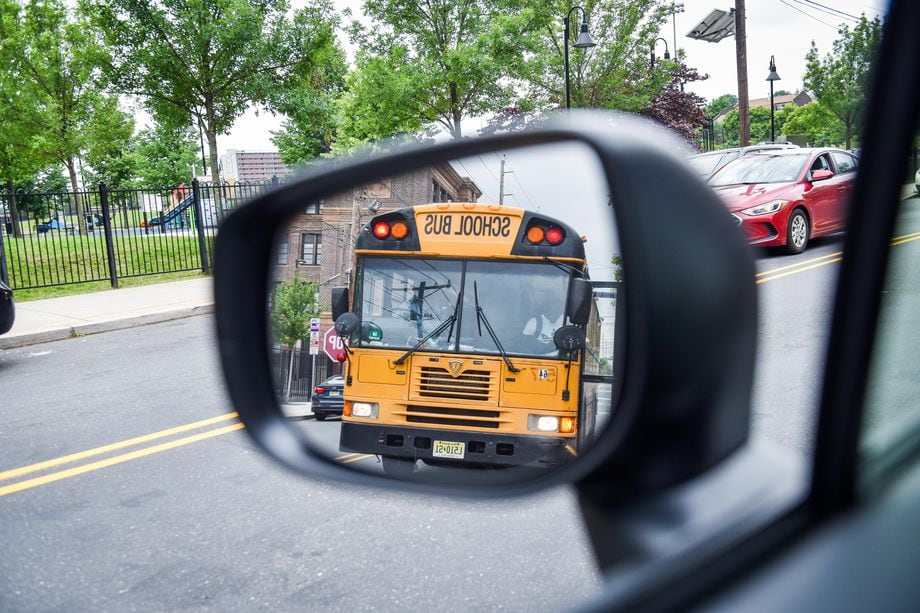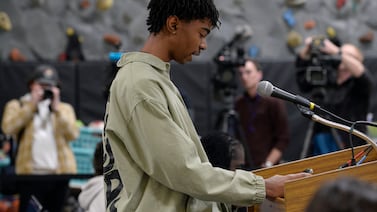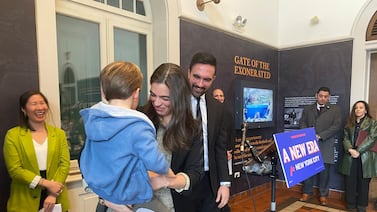Indianapolis Public Schools may eliminate school busing for about 6,400 of its students next school year, administrators indicated, as the district weighs as much as $17 million in potential transportation cuts.
District administrators propose cutting transportation for high school students who live on city bus lines and reducing it for elementary school students who live close enough to walk to schools. If the board approves the most drastic cuts, about 2,400 high school students and 4,000 elementary school students could lose district-provided transportation.
The potential cuts could affect innovation schools that receive transportation through IPS.
As charters and other schools have siphoned off students, Indianapolis’ largest school district has been losing enrollment, and thus state funding for years. The financially strapped district has been examining potential budget cuts, including reducing transportation and possibly closing schools, after settling for smaller tax referendums in 2018 than what leaders said it needed. The tax increases have helped pay for costs such as raises for teachers, but IPS still needs to bring down operating costs to stabilize the budget.
The district also faced an unexpected $15 million funding shortfall due to a drop in enrollment during the pandemic.
But reducing busing, as Chief Operations Officer Scott Martin said during a board retreat on Saturday, could raise concerns about racial equity in a district that serves predominantly Black and Latino students. District students may have a harder time attending high-quality extracurricular activities if they have no district busing and must rely only on metro buses.
Zach Mulholland, the district’s executive director of operations, said that eliminating transportation could affect whether students can choose to attend certain activities.
“These do have real-world implications in terms of how our students are able to access programs in schools,” Mulholland said.
Administrators said they will develop criteria for who could lose bus service. Out of $17 million in potential cuts identified by a consultant, reducing transportation for students who can walk or take IndyGo could save about $6 million. Other options, such as expanding walk zones, switching bell times, or changing bus routes, could lead to additional savings.
The board may decide on transportation cuts by the end of the school year.
Besides children having to walk further, parents may be concerned about their children walking through neighborhoods with high crime rates or with no sidewalks. Indianapolis also suffers from limited public transportation and has recently removed more than 500 IndyGo bus stops.
The district had not publicized Saturday’s discussion of the proposed reduction in busing. No community members or parents attended the retreat.
Mulholland said the district seeks to reduce buses, routes, and midday and after-school trips that contribute to IPS’s “high cost” transportation system, which he said per pupil is about 1.5 times more expensive than what other urban districts nationwide spend.
Subsidizing IndyGo passes would cost the district about $650,000 next school year, he said, but still would result in transportation savings.
Mulholland blamed high transportation costs in part on the district sending students to specialized, choice schools across the city, rather than relying on neighborhood schools. Some buses carry 12 or fewer students on their regular runs.
Administrators cited positive feedback from students and families about their experiences riding IndyGo in a pilot program.
But Martin said this time might be different.
“It’s a great thing, as long as you’re not taking away a guaranteed thing,” Martin said.
Board members expressed reservations and worried about pushback from parents.
Board member Diane Arnold recalled feedback about students not having a safe route to get from their home to the IndyGo bus stop. Some community members were concerned about high school students having to walk in darkness in the early hours and in neighborhoods with no sidewalks and with busy intersections.
Mulholland said the district has to decide which students will and will not qualify to ride district buses. Federal law requires transportation for students with special needs and those who are homeless.
Board member Taria Slack said the district would have to be clear about how it arrives at its decision.
“That will be the biggest hurdle right now,” Slack said. “Me as a parent, I would totally disagree. I would still have an issue without having this information beforehand.”
Corrections: Jan. 27, 2021: A previous version of this story listed an incorrect title for Scott Martin. The story has also been updated to clarify that the district did not publicize Saturday’s discussion of the proposed busing reduction.
Jan. 28, 2021: A previous version of this story incorrectly stated that the transportation discussion was not listed on the board retreat agenda. The story also included an incorrect number of high school students who could be affected by transportation cuts, due to incorrect information provided by the district. The story has been updated to clarify that transportation cuts could affect students’ ability to participate in extracurricular activities and that reducing transportation for students who can walk or take IndyGo could lead to up to $6 million in savings out of $17 million in potential cuts.





